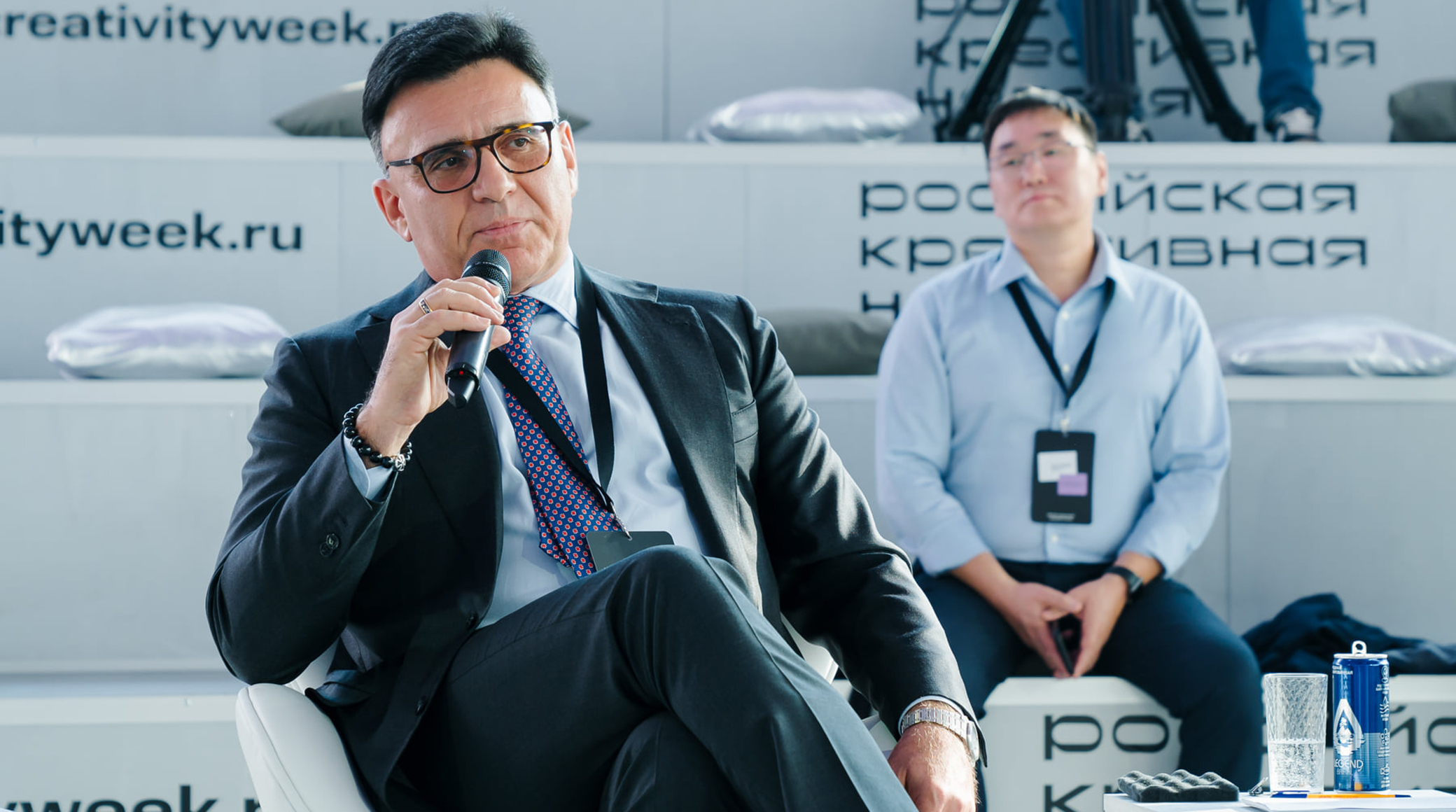A discussion session called “Media of the future: New rules of the global game” was held at Russian Creative Week on August 27. The session took place in the “New Media” pavilion, which Gazprom-Media Holding curates. The Holding’s CEO Alexander Zharov took part in the event.
There are great changes happening in the global media. These changes are not only shaping the future of the media business, but also people’s lives. The session moderator Nikolay Uskov, editorial director at Forbes, pointed out that only 20 years ago the media landscape in Russia looked completely different. Back then, influential TV channels appeared rock solid and were the main sources of information and entertainment. There were influential newspapers, weekly and glossy magazines. Business models have changed since then, as have the habits of readers and viewers, content delivery as well as the formats of content produced. These changes open up new opportunities not only for media holdings, but also for ordinary people who can now create their own, influential media company and get a huge audience in just a few months.
Responding to these comments, Alexander Zharov argued that such changes were already taking place as long ago as the times of Johannes Gutenberg.
“The same message was addressed to a mass audience, and the bigger the coverage, the more money the content producer made and the more popular he became. The slogan of the past 500 years was “content is king”. Today, in the era of digital transformation, the slogan is “client is king”. Because of this, the media, the marketing teams and distribution channels are becoming more and more personalised,” Alexander Zharov explained. “On one hand, these changes are completely revolutionary, but we, as professionals, must make the transition period as smooth as possible. We must make the audiences of traditional media comfortable because the obvious, second sign of the new era is the stratification of society. TikTok’s teenage audience often watches YouTube and does not watch TV. Meanwhile, middle-aged people who love one TV channel or another have prejudices against TikTok. Our job is to level out this division and try to create platforms where people from different generations could communicate. Our Holding owns RUTUBE and rather than making it a competitor to some other global platform, we are working to make it into a platform for personalised communication between different generations. Our main vector is the creation of universal platforms for different generation groups.”
At the same time, it is important to adapt the media platforms to the changing environment.
“The next thing we need is to create institutions where representatives of traditional media will learn new skills. I would like to thank the relevant department of the Presidential Administration for the ArtMasters tool where professionals of traditional and new media compete. There are also state institutions - the presidential Foundation for Cultural Initiatives, the Institute of Internet Development - which introduce rules to the “digital 90s”, the unregulated, chaotic environment of digital media. It is obvious that this message from above finds a response from below, among the creators. If we compare last year’s Creative Week and this one, it is clear that the scale has grown, it became bigger. It is obvious that the creative industries are responding, and this is fantastic,” said Alexander Zharov.
To conclude, the session’s participants discussed another key aspect of the changing market - the readiness of Russian players to compete globally.
“The quality of the content we produce meets international standards. Filmed in 2019, the series Epidemiya (To the Lake) coincided with the pandemic that followed in an astonishing way and simply crushed the rankings in America and Europe. Right after this, the same studio 1-2-3 Production got an exclusive order from Netflix to make the series Anna K. As with anything related to advertising and marketing, there are fashionable trends. Before this, Spanish series were trendy on Netflix. Now Russian series are becoming trendy. The marketing campaign indicated at very high expectations. The response was equal to or even higher than that for the Vedmak (The Witcher) series,” said Alexander Zharov. “Global platform users are waiting for Russian films and there are now dozens of companies in our country who are able to produce series of such a high level. Our task is to use the capacities of the global platforms to promote our values. If there is demand, we must satisfy it so that, after watching Anna Karenina, people understand that Russia is beautiful and they urgently need to visit because this is the place to be in love.”
The deputy CEO of the All-Russia State Television and Radio Broadcasting Company (VGTRK) Alexander Nechaev, the deputy head of the Presidential Executive Office for public projects Alexander Zhuravsky and the general manager of Telecom Daily Denis Kuskov also took part in the discussion.
